#duwars
Explore tagged Tumblr posts
Text
"The mass of swirling, destructive power that was Duwar had spread like spilled ink across Durmain’s landscape. It was a scar upon the world, a shadow demanding all light. Within it, flashing with flames amongst thick unnatural smoke, a monster roamed, but not one made from flesh and bone – one crafted from the twisted will of a person’s final wish. Ash coated the air, spoiling each inhalation, lathering my tongue with the taste of… death. This was a disease on the realms – a physical reflection of Cassial’s intent and promise."
-A Game of Monsters
0 notes
Text
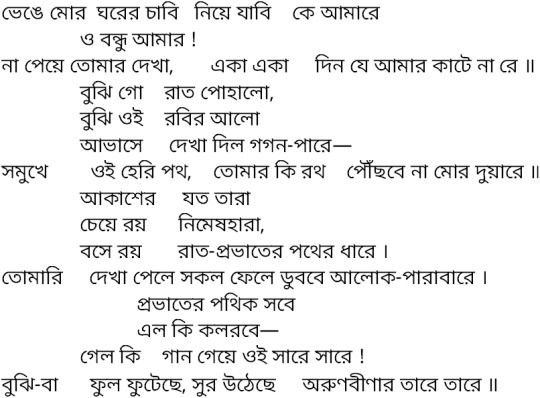
(Transliteration:Bhenge mor gharer chaabi niye jaabi ke aamare
O bondhu aamar !
Na peye tomar dhekha, eka eka din je aamar kaate na re.
Bujhi go raat pohalo,
Bujhi oi robir aalo
Aabhase dekha dilo gagon-pare -
Samukhe oi heri path, tomar ki rath pouchhobe na mor-duware.
Aakasher jato taara
Chheye roy nimeshhaara,
Bose roy raat probhater pather dhare.
Tomari dekha pele sakal phele dubbe aalok-paarabare.
Probhater pothik sabe
Elo ki kalorobe -
Gelo ki gaan geye oi saare saare !
Bujhi ba phul phutechhe, sur utthechhe orunbinar taare)
(Translation:Breaking my locked door who will set me free
O my friend
Without you, my lonely life ceases to flow,
The night seems to end,
Hint of sunrays appear in the sky -
I see the path in front; won’t your chariot come my way?
All the stars in the firmament stare unblinking
Waiting at the edge of daybreak
At your sight to leave and plunge into the sea of light
The travellers of the dawn
Come with their sweet chatter
Singing as they fly in formation
Perhaps flowers bloom and melody floats on
The strings of the sunbeam)
This Rabindra Sangeet speaks of a woman who is eagerly waiting all might for her lover to break down all the locks(barriers) and take her away.
I don't know , but somewhere I feel it's very Rukmini-Krishna themed. As if Mata Rukmini is singing this for Prabhu from Vidarbha and He can hear it just fine all the way from Dwarka (He's God. He can do anything). Do give this song a listen and express your opinions.
Raadhe Raadhe🦚🦚🌸🌸🙏🙏
#desiblr#hinduism#krishna#desi culture#vedic culture#spotify#gopiblr#rukmini krishna bhakt#rukmini#dwarkadhish#rabindranath tagore#rabindrasangeet#Spotify
9 notes
·
View notes
Text
uf i could have 9hw gysews awecubfa id duwar OIRriwa u qiuks vw KK AWR DIE IBW St
4 notes
·
View notes
Text
Land Pooling Is for farmers profit and to end corruption Raj of illegal colonisers : CM Mann
Chandigarh, May 28: Punjab Chief Minister Bhagwant Mann addressed concerns and misconceptions surrounding the state’s land pooling policy during an extensive interaction with the people during his ‘AAP Sarkar, Aapke Duwar’ Program in Patiala. With an emphasis on transparency, inclusivity, and the welfare of the people, CM Mann reassured the public that the government is not acquiring land…
0 notes
Text
Felpols anchies and revenge
Open the white sights of the Newstter Free Your book is taking control of what is the selection of 2024 to refer to Washington and the world Donald Trump announced the New Terms of US Wednesday, I will take possession of the world’s economy of the business competition. Standards, announced from the White House’s duwar on a day with a waker “, enter the original words in the world and…
0 notes
Text
A Deception of Courts by Ben Alderson

Official Synopsis:
With high stakes and even higher heat, A Deception of Courts is the third installment in the bestselling Realm of Fey series by Ben Alderson, perfect for fans of ACOTAR by Sarah J. Maas. Robin Icethorn, King of the Winter Court, must stop The Hand, who threatens to bring forth a time of monsters. The search for the keys to free Duwar, the demon God, from his unearthly bindings has begun. Finding unlikely allies, Robin is thrust into a war of Gods, becoming no more than a pawn on the game board he never wished to be a part of. Whilst new flames crackle with electrifying power and old flames return, equally changed – Robin is forced to make decisions that would change the course of his, and his kingdoms, lives forever.
My Thoughts:
A Deception of Courts is the third book in Ben Alderson's "Realm of Fey" series. I enjoyed both A Betrayal of Storms and A Kingdom of Lies and liked this most recent release in the queer romantasy series as well, though not quite as much as the first two.
Like the previous two books, this one is fast-paced with lots of action and some big twists. It builds on the religious aspect introduced in A Kingdom of Lies and introduces new allies to aid Robin's fight against his enemies.
A Kingdom of Lies remains my favorite book in this series but there were a lot of great things in this one. Duncan and Robin's relationship intensifies and continues to be the best part of the series even with the many complications introduced. Althea also gets a little more focus in this book, and Robin begins to truly step into his role as King, adding some great character moments.
My only complaint is that the entire middle of the book got bogged down with too many negotiations involving the new characters. The beginning and ending of the book were both very exciting but I do think this book could have benefited from trimming down some of these repetitive discussions.
One warning, A Deception of Courts ends on a really big and emotional cliffhanger that left me shocked and near tears. Thankfully, A Game of Monsters will be released in May 2025 so we won't have to wait too long to see it resolved.
My Rating: 🌕🌕🌕🌗🌑 (3.5/5 stars).
Tropes/Tags: romance, romantasy, Achillean, spicy, love triangle
Spice Level: 🌶️🌶️🌶️🌶️/5. There are multiple sex scenes that are explicit and “Open Door”.
Romantasy Scale: This falls closer to the Romance genre. It's a spicy romance set in a fantasy world.
If you liked this I think you will like A Deception of Courts: Fans of spicy male/male romance and fans of Ben Alderson’s independently published books should love this!
Links: Storygraph | GoodReads | BenAlderson.com
A Deception of Courts was released on December 3, 2024, and is available to order!
I received an advanced copy of this book for free thanks to NetGalley and Angry Robot. The above are my honest feelings about the book provided. I don’t have any affiliate links in this post, and I do not make any money from my reviews. I review books simply because I love to read.
1 note
·
View note
Link
1 note
·
View note
Text
जाने क्या है, छत्तीसगढ़ पढ़ई तुंहर दुआर पोर्टल
जाने क्या है, छत्तीसगढ़ पढ़ई तुंहर दुआर पोर्टल #ChhttisgarhNews #govtscheme #bupeshbaghel
छत्तीसगढ़ पढ़ई तुंहर दुआर पोर्टल छत्तीसगढ़ के मुख्यमंत्री भूपेश बघेल जी के द्वारा शुरू किया गया है। जब पूरे देश में लॉकडाउन लगा हुआ था तब छत्तीसगढ़ के बच्चों के पढ़ाई को जारी रखने के लिए उन्हें ऑनलाइन क्लास वीडियो लेशन और शैक्षिक खेल के साथ पढ़ाई जारी रखने के उद्देश्य से पढ़ई तुंहर दुआर को शुरू किया गया था। कोरोना महामारी के वक्त जब इस योजना को लागू किया गया था तब एक दिन में 820 बच्चे और लगभग…
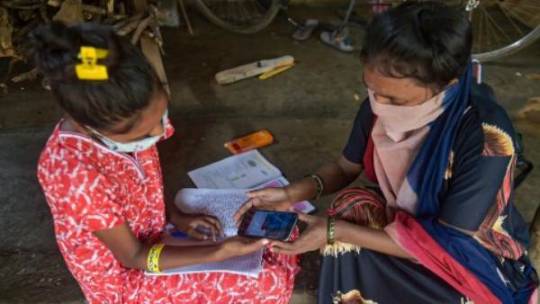
View On WordPress
#cg yojna 2023#chhttisgarh news#chhttisgarh padhai tuhar duwar#govt scheme#Padhai Tuhar Dwar#rajya sarkar ki yojna#Sarkari Yojna#Yojna
0 notes
Photo
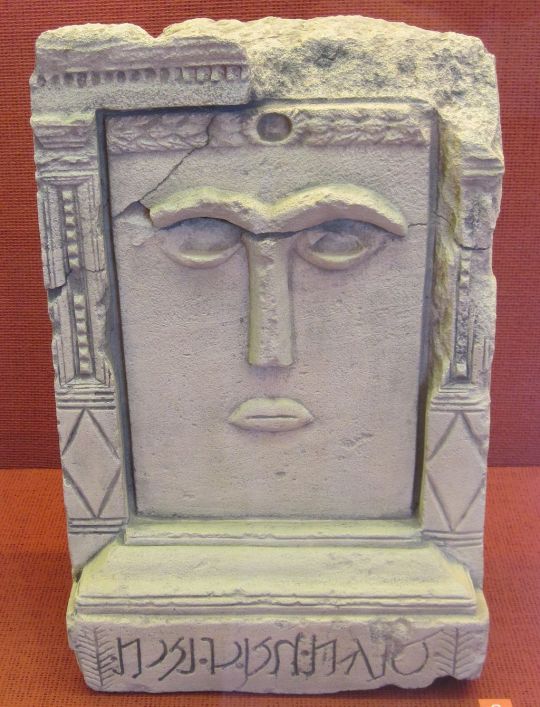
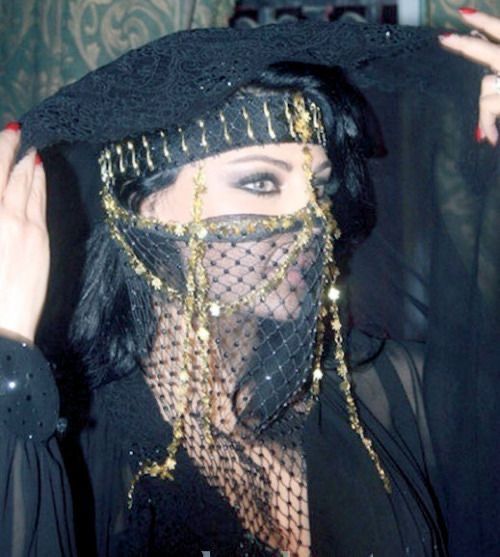
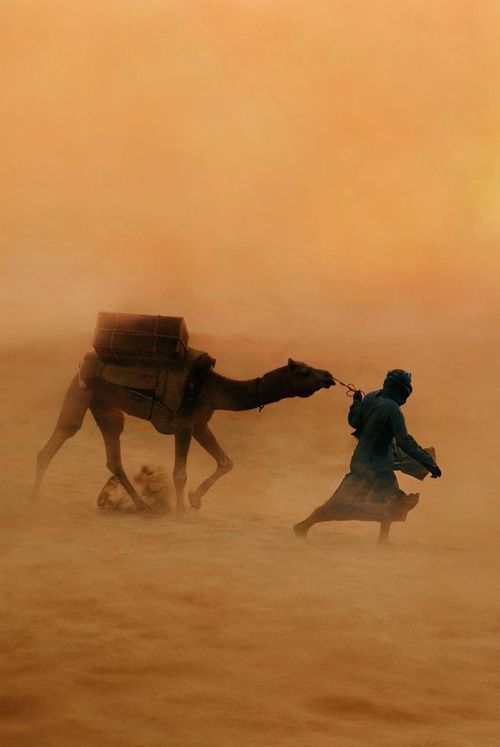
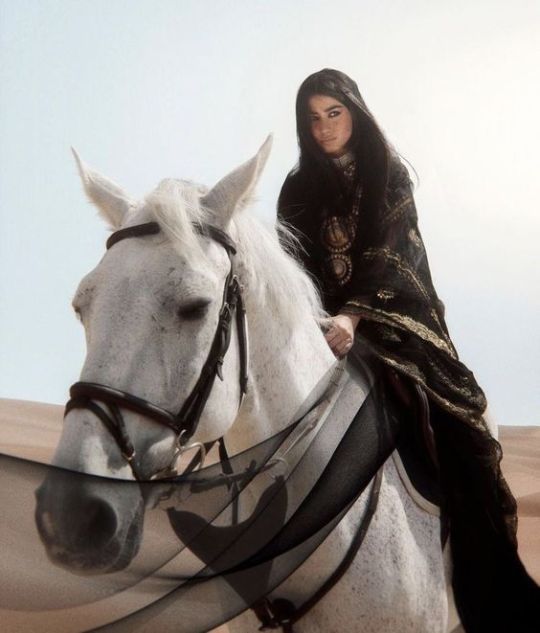
EYE ··· Idol of Atargates from Petra ··· Eye imagery in many forms is associated with the goddess Al-ʻUzzā Arabic: العزى al-ʻUzzā
Hubal - god of war, victory in battle, fortune, and rainfall; husband of the goddess Al-Uzza.
Manaf - god of mountains
Quzah - god of storms, thunder, and clouds; husband of Manat. Thunder, said to be the battle-cry of Quzah, was believed to scare away spirits of disease and misfortune. The rainbow that appeared after rain was considered by the people of Mecca to be a ladder to the heavens.
Isaf and Na'ila - Meccan water deities: the dual guardian spirits of the holy well of Zamzam
Duwar - goddess of maidens; she was worshiped by the youngest women of the Banu Quraysh
Al-Ikrimah - god of fertility; his idol was a statue of a dove carved from aloe wood
Dhātu-Anwāt - goddess of trees
Suwā - goddess of night, beauty, and freshwater springs
Ar-Rā'iyu (’The One Who Sees’) - god of dreams and prophecy. All dreams were considered to be messages from the gods in pre-Islamic Arabia and oracles specialized in interpreting them. This god was believed to be an all-seeing guardian.
Al-Mundhir - a west Arabian god of justice, whose name means “The Cautioner”
Yaghuth - (“He Helps”) the south Arabian god of strength, courage, and war; had an idol that was a statue of a lion which was situated on a hill in Yemen
Yahwah - north Arabian weather god, worshiped as a divine warrior who rides on the clouds and leads the armies of Heaven. In the religion of the Hebrew tribes of ancient Palestine, their deity Yahweh was originally one god among many; although in later times he developed into a major tribal god and eventually the Hebrews elevated him to the status of an all-powerful creator god above all the others: a position that was held previously by El, who became an epithet of Yahweh.
Bahar (or Bajar) - god of the ocean
Rudā - a central Arabian rain goddess; brought droughts when angered
Nahastāb - a south Arabian fertility god who was worshiped by the Minaean Arabs. This god was associated with serpents who were recognized as omens of bounty and fertile ground.
Su’ayr - north Arabian god of oracles
Al-Jalsad - south Arabian god of pastures and fields
Ashar - north Arabian god of war
Ni'mat - north Arabian goddess of fortune
Hāwlat - goddess of magic and power; patroness of the oases of Dumah and Hejra. The name of the goddess means “to change (fortunes)” and “to avert”.
Abgal - north Arabian tutelary god; god of the desert and the patron of Bedouins and caravan drivers
Amm’anas - south Arabian god of agriculture
Nasr - god of the deep desert whose idol was a sculpture of a large vulture (in some sources an eagle) that was situated in a temple in the village of Balkha in Yemen. The sacred animal of Nasr, the vulture, was venerated by his worshipers as a totem of insight and sharp character; as well as this, the god represented the hostile and unforgiving aspects of nature, in particular, the desert.
Dhātu-Ba'dan - south Arabian goddess of oases, nature, and the wet season
Taraha - north Arabian goddess of fortune and prosperity. This goddess was also known as Tadha and was believed to watch over the tombs of the dead.
Al-Ghurab - god of the dead; his idol was in the form of a raven that was housed in the Ka'aba along with 360 other idols of gods and goddesses. Ravens were sacred to this god as guardians of the spirits of the dead
Kuthrā (“The Most Rich”) - central Arabian goddess of prosperity and fortune
Khomar - south Arabian god of wine and vineyards
Ya’uq is the south Arabian god of protection and preservation who was associated with swift thought and intelligence
Salman (or Salim) - god of oases, peace, and harmony. In the religion of the western Semites, Shalim was a god of the underworld and the dusk, and his name ’Shalim’ (Peace) was meant as an allegory for the peace of the grave.
Rahmaw (or Rahmanan) - south Arabian god of mercy and protection, whose mythology was later absorbed into that of the creator god Allah.
Al-Jadd - god of luck
Jihār - west Arabian god of longevity, wisdom, and marketplaces
Isāt - south Arabian goddess of fire; counterpart to the Canaanite fire goddess Ishat, wife of Moloch
Yurhim - god of joy and happiness
Harimtu (or 'Athiratan) - south Arabian goddess of fertility; the mother of the gods and the wife of the sky god Ilmaqah
Ilmuqah (also known as Ilumquh and Almaqah) - south Arabian god of the sky and the chief tribal deity of the Sabaean Arabs. He was worshiped as the protector of artificial irrigation and his divine symbol was a cluster of lightning bolts surrounding a curved sickle. Bulls were the sacred animals of Ilmuqah. His name means “The God Who Gives Health”
Shay al-Qawm - god of war, valour, and the night
Qaynan - god of metalworkers and smiths
Al-Kutbay (or al-Aktab) - god of writing, prophecy and merchants who was the scribe of the gods and recorder of all deeds and events
Raziqa (or Razeka) - goddess of the earth and fertility who was worshiped by the ancient tribes of Thamud and 'Ād as a provider of food and sustenance.
Nuha (or Nahi) - north Arabian goddess of wisdom and intelligence
Hafidha - goddess of travel and journeys
Thu'ban - god of snakes; believed to be a giant serpent who guarded the treasures in the well of the Ka'aba of Mecca.
.
.
Hilāl - god of the moon; provided relief and dew for the weary desert nomads and their flocks. The waning crescent moon which was first visible before and after a new moon, heralded the start of Ramadan: this was a sacred time for the pagan Arabs of Mecca and the Hijaz, during which they fasted and feasted. Shams - goddess of the sun and the chief goddess of the Himyar tribal confederation; believed by the inhabitants of the fertile lands of south Arabia to be a preserver of crops and domestic life, while other tribes with more intense heat viewed her as a destroyer of lands. She was both respected and feared.Athtar - god of the planet Venus (linked with the Canaanite god Attar). Athtar is the provider of water and a protector of irrigation systems. His sacred symbol is a spear-point as he is also a war god, and his sacred animal is the Arabian oryx (antelope). Akhwar - god of righteousness and the planet Jupiter 'Utarid - god of intelligence, learning, writing, eloquence, and Mercury Azizan (also known as Azizos) is the north Arabian god of the planet Mars who was associated with victory in battle and was depicted as riding on a camel alongside his brother Mun'im Nakruh - god of the planet Saturn Dhu’l-Samawi - god of the night sky, the stars, and the constellations whose name translates as “Lord of the Heavens”. Bedouin tribes would bring their animals to the shrine of Dhu’l-Samawi when they were injured and they also sent sick people to reside at his shrine in order to receive healing. Shangilā - north Arabian god of stars Ash-Shi'rā - goddess of the Sirius star; believed to bestow wealth and good fortune Ath-Thurayya - goddess of the Pleiades star cluster As-Simāk (’The Uplifted One’) is a west Arabian star god who was the deification of the star Arcturus in the constellation of Bootes and was worshiped to bring riches, renown and honor. The symbol of the god was the lance (ar-rimah) and was also named as Haris as-Samā’, 'the Guardian of Heaven’. Al-Dabaran (“The Follower’’) - god of the star Aldebaran Underworld Deities: Mawt - god of death and sterility; the Arabian counterpart of the Canaanite god Mot; sacred animals of Mawt are owls. After a person died, their soul (nafs) was believed to descend to the land of Mawt, the akhirah; where they lead a calm, yet gloomy, existence as spirits (arwah) and as shades (ashbah). The Arabs believed the Underworld to be neither a place of reward nor punishment, but simply as a state of existence without pain or pleasure that most people would lead as a shabah or shade. But the spirits of priests and powerful and honoured people were believed to ascend to a heavenly otherworld (al-Munqalab) or the sky (as-Sama’) itself, where they would enjoy the company of the gods and angels (mala'ikah) and would have power over human affairs in the Dunyā (the material world).Hawkam - god of justice and the Judge of the Dead Ba'alat-Sahra - a north Arabian goddess of the Underworld and the desert; she was an important goddess of the nomadic Semites; known to the Amorite tribe of southern Syria as Belet-Seri, the wife of their chief god Amurru. Qaysha - south Arabian funerary goddess Hawran - underworld god who presided over the spirits of disease which he could protect from or send at will as punishment; protected people from the venom of snakes. Al-Muharriq - underworld god who was represented as a fierce deity at a red shrine and whose sacred animal was an adult male lion (usamah). Al-Muharriq, like his Babylonian counterpart Nergal, had a wrathful disposition; he was believed to send diseases and plagues if he was angry with the population. The name of the god means ’'the Burner” as he represented the scorching heat of the desert, as well as the heat of disease and fire.
5 notes
·
View notes
Text
well at least duwar is out of duncan. he better LIVE now
0 notes
Text
Arabian Deities List
A list of the pagan gods who were worshipped by the Pre-Islamic Arabs. Much of the evidence of these deities and their worshippers were destroyed during the rise of Islam, but this is the majority of those remembered:
Elder Gods:
Allah - the supreme deity (both male and female) of the pagan Arabs. Allah is the one who existed before all things and had created the universe. Afterwards, they retired into the position of a silent and remote spectator who dwelt in 'Aliyyin, the highest heaven, and only intervened in human affairs in extreme cases of drought or danger. Despite being the supreme deity, Allah was rarely directly worshipped.
Al-Lat - goddess of war, peace, combat, and prosperity. Al-lat was the Meccan mother goddess and the chief deity of the tribe of Banu Thaqif. She is one of the three daughters of Allah- all of whom were the supreme goddesses of the Arabs and were widely worshipped.
Al-Uzza - goddess of might, protection, love, and the planet Venus. One of the three daughters of Allah and wife of Hubal, god of war
Manat - goddess of fate, destiny, and death. She is the eldest of her three sisters (making her the eldest deity after Allah). She is wife of Quzah, the god of thunder.
Younger Gods:
Hubal - god of war, victory in battle, fortune, and rainfall; husband of the goddess Al-Uzza.
Manaf - god of mountains
Quzah - god of storms, thunder, and clouds; husband of Manat. Thunder, said to be the battle-cry of Quzah, was believed to scare away spirits of disease and misfortune. The rainbow that appeared after rain was considered by the people of Mecca to be a ladder to the heavens.
Isaf and Na'ila - Meccan water deities: the dual guardian spirits of the holy well of Zamzam
Duwar - goddess of maidens; she was worshiped by the youngest women of the Banu Quraysh
Al-Ikrimah - god of fertility; his idol was a statue of a dove carved from aloe wood
Dhātu-Anwāt - goddess of trees
Suwā - goddess of night, beauty, and freshwater springs
Ar-Rā'iyu ('The One Who Sees') - god of dreams and prophecy. All dreams were considered to be messages from the gods in pre-Islamic Arabia and oracles specialized in interpreting them. This god was believed to be an all-seeing guardian.
Al-Mundhir - a west Arabian god of justice, whose name means ''The Cautioner''
Yaghuth - ("He Helps") the south Arabian god of strength, courage, and war; had an idol that was a statue of a lion which was situated on a hill in Yemen
Yahwah - north Arabian weather god, worshiped as a divine warrior who rides on the clouds and leads the armies of Heaven. In the religion of the Hebrew tribes of ancient Palestine, their deity Yahweh was originally one god among many; although in later times he developed into a major tribal god and eventually the Hebrews elevated him to the status of an all-powerful creator god above all the others: a position that was held previously by El, who became an epithet of Yahweh.
Bahar (or Bajar) - god of the ocean
Rudā - a central Arabian rain goddess; brought droughts when angered
Nahastāb - a south Arabian fertility god who was worshiped by the Minaean Arabs. This god was associated with serpents who were recognized as omens of bounty and fertile ground.
Su’ayr - north Arabian god of oracles
Al-Jalsad - south Arabian god of pastures and fields
Ashar - north Arabian god of war
Ni'mat - north Arabian goddess of fortune
Hāwlat - goddess of magic and power; patroness of the oases of Dumah and Hejra. The name of the goddess means ''to change (fortunes)'' and ''to avert''.
Abgal - north Arabian tutelary god; god of the desert and the patron of Bedouins and caravan drivers
Amm’anas - south Arabian god of agriculture
Nasr - god of the deep desert whose idol was a sculpture of a large vulture (in some sources an eagle) that was situated in a temple in the village of Balkha in Yemen. The sacred animal of Nasr, the vulture, was venerated by his worshipers as a totem of insight and sharp character; as well as this, the god represented the hostile and unforgiving aspects of nature, in particular, the desert.
Dhātu-Ba'dan - south Arabian goddess of oases, nature, and the wet season
Taraha - north Arabian goddess of fortune and prosperity. This goddess was also known as Tadha and was believed to watch over the tombs of the dead.
Al-Ghurab - god of the dead; his idol was in the form of a raven that was housed in the Ka'aba along with 360 other idols of gods and goddesses. Ravens were sacred to this god as guardians of the spirits of the dead
Kuthrā (''The Most Rich'') - central Arabian goddess of prosperity and fortune
Khomar - south Arabian god of wine and vineyards
Ya’uq is the south Arabian god of protection and preservation who was associated with swift thought and intelligence
Salman (or Salim) - god of oases, peace, and harmony. In the religion of the western Semites, Shalim was a god of the underworld and the dusk, and his name 'Shalim' (Peace) was meant as an allegory for the peace of the grave.
Rahmaw (or Rahmanan) - south Arabian god of mercy and protection, whose mythology was later absorbed into that of the creator god Allah.
Al-Jadd - god of luck
Jihār - west Arabian god of longevity, wisdom, and marketplaces
Isāt - south Arabian goddess of fire; counterpart to the Canaanite fire goddess Ishat, wife of Moloch
Yurhim - god of joy and happiness
Harimtu (or 'Athiratan) - south Arabian goddess of fertility; the mother of the gods and the wife of the sky god Ilmaqah
Ilmuqah (also known as Ilumquh and Almaqah) - south Arabian god of the sky and the chief tribal deity of the Sabaean Arabs. He was worshiped as the protector of artificial irrigation and his divine symbol was a cluster of lightning bolts surrounding a curved sickle. Bulls were the sacred animals of Ilmuqah. His name means ''The God Who Gives Health''
Shay al-Qawm - god of war, valour, and the night
Qaynan - god of metalworkers and smiths
Al-Kutbay (or al-Aktab) - god of writing, prophecy and merchants who was the scribe of the gods and recorder of all deeds and events
Raziqa (or Razeka) - goddess of the earth and fertility who was worshiped by the ancient tribes of Thamud and 'Ād as a provider of food and sustenance.
Nuha (or Nahi) - north Arabian goddess of wisdom and intelligence
Hafidha - goddess of travel and journeys
Thu'ban - god of snakes; believed to be a giant serpent who guarded the treasures in the well of the Ka'aba of Mecca.
Celestial Deities:
Hilāl - god of the moon; provided relief and dew for the weary desert nomads and their flocks. The waning crescent moon which was first visible before and after a new moon, heralded the start of Ramadan: this was a sacred time for the pagan Arabs of Mecca and the Hijaz, during which they fasted and feasted.
Shams - goddess of the sun and the chief goddess of the Himyar tribal confederation; believed by the inhabitants of the fertile lands of south Arabia to be a preserver of crops and domestic life, while other tribes with more intense heat viewed her as a destroyer of lands. She was both respected and feared.
Athtar - god of the planet Venus (linked with the Canaanite god Attar). Athtar is the provider of water and a protector of irrigation systems. His sacred symbol is a spear-point as he is also a war god, and his sacred animal is the Arabian oryx (antelope).
Akhwar - god of righteousness and the planet Jupiter
'Utarid - god of intelligence, learning, writing, eloquence, and Mercury
Azizan (also known as Azizos) is the north Arabian god of the planet Mars who was associated with victory in battle and was depicted as riding on a camel alongside his brother Mun'im
Nakruh - god of the planet Saturn
Dhu’l-Samawi - god of the night sky, the stars, and the constellations whose name translates as "Lord of the Heavens". Bedouin tribes would bring their animals to the shrine of Dhu’l-Samawi when they were injured and they also sent sick people to reside at his shrine in order to receive healing.
Shangilā - north Arabian god of stars
Ash-Shi'rā - goddess of the Sirius star; believed to bestow wealth and good fortune
Ath-Thurayya - goddess of the Pleiades star cluster
As-Simāk ('The Uplifted One') is a west Arabian star god who was the deification of the star Arcturus in the constellation of Bootes and was worshiped to bring riches, renown and honor. The symbol of the god was the lance (ar-rimah) and was also named as Haris as-Samā', 'the Guardian of Heaven'.
Al-Dabaran (''The Follower'') - god of the star Aldebaran
Underworld Deities:
Mawt - god of death and sterility; the Arabian counterpart of the Canaanite god Mot; sacred animals of Mawt are owls. After a person died, their soul (nafs) was believed to descend to the land of Mawt, the akhirah; where they lead a calm, yet gloomy, existence as spirits (arwah) and as shades (ashbah). The Arabs believed the Underworld to be neither a place of reward nor punishment, but simply as a state of existence without pain or pleasure that most people would lead as a shabah or shade. But the spirits of priests and powerful and honoured people were believed to ascend to a heavenly otherworld (al-Munqalab) or the sky (as-Sama') itself, where they would enjoy the company of the gods and angels (mala'ikah) and would have power over human affairs in the Dunyā (the material world).
Hawkam - god of justice and the Judge of the Dead
Ba'alat-Sahra - a north Arabian goddess of the Underworld and the desert; she was an important goddess of the nomadic Semites; known to the Amorite tribe of southern Syria as Belet-Seri, the wife of their chief god Amurru.
Qaysha - south Arabian funerary goddess
Hawran - underworld god who presided over the spirits of disease which he could protect from or send at will as punishment; protected people from the venom of snakes.
Al-Muharriq - underworld god who was represented as a fierce deity at a red shrine and whose sacred animal was an adult male lion (usamah). Al-Muharriq, like his Babylonian counterpart Nergal, had a wrathful disposition; he was believed to send diseases and plagues if he was angry with the population. The name of the god means ''the Burner'' as he represented the scorching heat of the desert, as well as the heat of disease and fire.
Source
234 notes
·
View notes
Text
How To Work With Dakinis
༄༅། །ཡུམ་ཀ་མཁའ་འགྲོའི་ཚོགས་ཀྱི་མཆོད་པ་ཉེ་བར་བསྡུས་པ་གྲུབ་གཉིས་དཔལ་ཕྲེང་།
A Glorious Garland of the Two Accomplishments
An Abridged Feast-Offering for the Female Practice of the Ḍākinī1
by Jamyang Khyentse Wangpo
ན་མོ་གུ་རུ་བྷྱཿ
Namo gurubhyaḥ!
སྙིང་དབུས་མི་ཤིགས་ཐིག་ལེ་ཆེར། །
བདེ་སྟོང་འཕོ་མེད་གྲུབ་པའི་སྲོག །
རྣམ་ཀུན་མཆོག་ལྡན་ཌཱ་ཀི་ནཱིར། །
དུས་གསུམ་དུས་མེད་ཆེན་པོར་འདུད། །
In the centre of my heart is the great, indestructible essence,
The life-force that accomplishes the empty bliss beyond transference.
To the ḍākinī endowed with the supreme of all aspects,
In the great timelessness beyond past, present, and future, I pay homage!
འདིར་རྣལ་འབྱོར་པ་གང་ཞིག་གིས་ཐུན་མོང་མ་ཡིན་པ་རྡོ་རྗེ་ཐེག་པའི་གསང་ལམ་མཐར་ཐུག་པའི་ཐབས་མཁས་ལ་བརྟེན་ནས་ཚོགས་གཉིས་མྱུར་དུ་འདུམས་པར་འདོད་པས་ཉེ་བར་བརྩམ་པའི་ཡན་ལག་ཁྱད་པར་ཅན་ནི་ཚོགས་ཀྱི་འཁོར་ལོ་སྟེ། དེའང་ཡེ་ཤེས་ཀྱི་ཌཱ་ཀི་བདེ་ཆེན་རྒྱལ་མོ��ི་དཀྱིལ་འཁོར་དུ་ཕྱི་ནང་གནས་ཡུལ་གྱི་མཁའ་འགྲོ་བསམ་གྱིས་མི་ཁྱབ་པ་མཉེས་པར་བྱེད་པ་ལ་རྒྱས་པར་ནི་རང་ཉིད་ཀྱི་ལས་གཞུང་ལས་འབྱུང་བ་ལྟར་ལ། སྤྲོས་པ་ཉེ་བར་བསྡུ་བའམ། གྲངས་གསོག་སོགས་ཀྱི་ཚེ་འཇུག་བདེ་བའི་དབང་དུ་བྱས་ན།
In order to please an inconceivable amount of ḍākinīs of the outer and inner sacred places who dwell in the maṇḍala of the wisdom ḍākinī Queen of Great Bliss, you can do this practice, which I have compiled by abbreviating the elaborate practice. It is particularly convenient if you want to accumulate the feast offerings.2
ཐོག་མར་བྱིན་གྱིས་བརླབ་པ་ནི།
Blessing the Offerings
ཧོཿ བདེ་བ་ཆེན་པོའི་སྣོད་མཆོག་ཏུ༔
ho, dewa chenpö nö chok tu
Hoḥ! In the wondrous vessel vessel of great bliss
ཚོགས་ཀྱི་འཁོར་ལོའི་ལོངས་སྤྱོད་ནི༔
tsok kyi khorlö longchö ni
Are arranged the delights of the feast-offering,
བླང་དོར་མེད་པའི་དམ་ཚིག་རྫས༔
langdor mepé damtsik dzé
The samaya substances that are free from accepting and rejecting.
ཨོཾ་ཨཱཿཧཱུྃ་གིས་བདུད་རྩིར་གྱུར༔
om ah hung gi dütsir gyur
With oṃ āḥ hūṃ they are transformed into ambrosia.
First Portion
ཚོགས་ཕུད་རིམ་པ་གསུམ་དུ་སྤྲོས་ལ།
Divide the first portion into three.
ཧཱུྃ། འོག་མིན་གནས་དང་མཁའ་སྤྱོད་ཞིང་༔
hung, womin né dang khachö shying
Hūṃ! The Unsurpassed3 and the other celestial realms,
དཔའ་བོ་མཁའ་འགྲོ་འདུ་བའི་གནས༔
pawo khandro duwé né
The sacred places where the heroic ones4 and ḍākinīs gather,
ཉི་ཤུ་རྩ་བཞི་སྤྲུལ་པའི་ཡུལ༔
nyishu tsashyi trulpé yul
The twenty-four emanated places,
ནང་ལྟར་རྡོ་རྗེ་ཕུང་པོའི་གྲོང་༔
nang tar dorjé pungpö drong
Are inwardly the cities of our vajra body.
སྤྱི་བོ་ཛ་ལནྡྷཱ་ར་སོགས༔
chiwor dzalandhara sok
The crown of the head is Jālandhara and so on—
གདན་གསུམ་ཚང་བའི་དཀྱིལ་འཁོར་ན། །
den sum tsangwé kyilkhor na
Dwelling in the maṇḍala of the three seats of completeness,5
བཞུགས་པའི་དཔའ་བོ་རྣལ་འབྱོར་མ༔
shyukpé pawo naljorma
Heroic ones and yoginīs,
མཁའ་འགྲོ་དང་ནི་མཁའ་འགྲོ་མ༔
khandro dang ni khadroma
Ḍākas and ḍākinīs—
ཚོགས་ཀྱི་འདུ་བར་གཤེགས་ས���་གསོལ༔
tsok kyi duwar shek su sol
Come and enjoy this feast-offering!
དབུ་སྐྲའི་ཐོར་ཚུགས་ལྡེམས་སེ་ལྡེམ༔
utra tortsuk dem sé dem
Your top-knots swaying,
ལྕང་ལོའི་ཟར་བུ་ཏ་ལ་ལ༔
changlö zarbu talala
Your long tresses swinging to and fro,
སྙན་ཆ་གདུ་བུ་ཀྱི་ལི་ལི༔
nyen cha dubu kyilili
Your earrings, anklets and armlets jingling,
རུས་རྒྱན་གཡེར་ཁ་ཁྲོ་ལོ་ལོ༔
rügyen yerkha trololo
Your bone ornaments rattling, your tiny bells ringing,
ཅང་ཏེའུ་དྲིལ་བུའི་སྒྲ་དང་བཅས༔
chang té'u drilbü dra dang ché
With small skull-drums and bells resounding,
རྡོ་རྗེའི་གླུ་དང་གར་ལ་རོལ༔
dorjé lu dang gar la rol
Take pleasure in our vajra songs and dances!
འདོད་ཡོན་ལོངས་སྤྱོད་ཚོགས་སུ་འབུལ༔
döyön longchö tsok su bul
We offer you the enjoyment of these sensory delights as the feast!
དམ་ཚིག་ཉམས་པ་མཐོལ་ལོ་བཤགས༔
damtsik nyampa tol lo shak
We confess our impairments of samaya!
ཕྱི་ནང་བར་ཆད་དབྱིངས་སུ་སྒྲོལ༔
chinang bar chö ying su drol
Liberate outer and inner obstacles into all-encompassing space!
མཆོག་དང་ཐུན་མོང་དངོས་གྲུབ་སྩོལ༔
chok dang tünmong ngödrub tsol
Grant us the supreme and common accomplishments!
ཡི་གེ་བརྒྱ་པ་བརྗོད།
Recite the hundred syllable mantra.
དེ་ནས་ལྷག་མ་བསྔོ་བ་ནི།
Dedicating the Remainder
Bless the remainder with:
ཨ་ཀཱ་རོས་བརླབ་
om akaro mukham sarva dharmanam adyanutpannatota om ah hung pé soha
oṃ akāro mukhaṃ sarvadharmānām ādyanutpannatvāt oṃ āḥ hūṃ phaṭ svāhā
ཕེཾ་ཕེཾ༔ ལྷག་ལ་དབང་བའི་བཀའ་ཉན་ནི༔
pem, lhak la wangwé kanyen ni
Peṃ peṃ! All you attendants who share in the remainder and carry out the commands:
མཁའ་འགྲོ་སུམ་ཅུ་རྩ་གཉིས་དང་༔
khandro sumchu tsa nyi dang
The thirty-two ḍākinīs,
གིང་ཆེན་ཁྱོ་ཤུག་ལངྐ་འབུམ༔
ging chen khyo shuk langka bum
The great kiṃkara with consorts and laṅkā spirits in your hundreds of thousands,
ཕོ་ཉ་སུམ་བརྒྱ་དྲུག་ཅུ་དང་༔
ponya sumgya drukchü dé
The three hundred sixty classes of messengers,
མགྱོགས་མ་བཞི་དང་འབར་མ་བརྒྱད༔
gyokma shyi dang barma gyé
The Four Swift Ones and Eight Blazing Ones,
མ་མོ་བདུན་དང་སྲིང་མོ་བཞི༔
mamo dün dang singmo shyi
Seven Mātṛkās and Four Sisters,
ཤུགས་འགྲོ་��ནས་ཉུལ་ཕྲ་མེན་རྣམས༔
shukdro né nyul tramen nam
The forceful, roaming and therianthropic spirits—6
ལྷག་ལ་གདུངས་ཤིང་ཚོགས་ཁང་འགྲིམ༔
lhak la dung shying tsokkhang drim
You who crave leftovers and roam the assembly halls,
ཕམ་ཕབས་བཟང་པོ་འདི་བཞེས་ལ༔
pampab zangpo di shyé la
Please accept this excellent remainder!
མི་མཐུན་རྐྱེན་ངན་བར་ཆད་སོལ༔
mitün kyen ngen barché sol
Dispel all unfavourable, negative circumstances and obstacles!
བཅོལ་བའི་ཕྲིན་ལས་འགྲུབ་པར་མཛོད༔
cholwé trinlé drubpar dzö
Accomplish the activities entrusted to you, this is our request!
ཅེས་པས་ཕྱི་རོལ་དུ་དོར།
Take the remainder outside.
Aspiration Prayer
ཡེ་ཤེས་མཁའ་འགྲོའི་གྲོང་ཁྱེར་དུ། །
yeshe khandrö drongkhyer du
In the city of the wisdom ḍākinīs,
ཚོགས་ཀྱི་འཁོར་ལོ་བསྐོར་བ་ཡིས།
tsok kyi khorlo korwa yi
Through offering this feast,
བདག་གཞན་འགྲོ་བ་མ་ལུས་པ།
dakshyen drowa malüpa
May I and all beings, without exception,
དཀྱིལ་འཁོར་གཅིག་ཏུ་འགྲུབ་པར་ཤོག སོགས་ཀྱིས་སྨོན་ལམ་གདབ་པར་བྱའོ། །
kyilkhor chik tu drubpar shok
Attain realization in one maṇḍala!
འདི་ཡང་ཀུན་མཁྱེན་བླ་མ་དང་། །
དབྱེར་མེད་མཁའ་འགྲོའི་ཚོགས་རྗེ་ཡིས། །
བྱིན་གྱིས་བརླབས་པའི་ཉེར་ལེན་ལས། །
བྱུང་ཕྱིར་སྐལ་བཟང་རྣམས་ཀྱིས་ལོངས། །
This text arose through the blessing
Of the Lord of the ḍākinī assembly,
Who is indivisible from the omniscient guru.
Fortunate ones, take it to heart!
ཞེས་པའང་དཔལ་ས་ལ་སྤྱོད་པའི་འོག་མིན་བསྒྲགས་མདའ་མཚོ་རྒྱལ་བླ་མཚོར་ཡུམ་ཀ་མཁའ་འགྲོའི་དཀྱིལ་འཁོར་དུ་ཚོགས་ཀྱི་འཁོར་ལོ་སྟོང་ཕྲག་ཐལ་བ་བགྱིས་པའི་ཚེ་རིག་འཛིན་གྱི་བཙུན་པ་པདྨ་དགྱེས་པའི་སྡེས་གནས་དེ་ཉིད་དུ་རྩ་བའི་གཞུང་ལས་བསྡུས་ཏེ་སྦྱར་བའི་དགེ་བས་འགྲོ་ཀུན་མཁའ་སྤྱོད་རྡོ་རྗེ་བཙུན་མོས་རྗེས་སུ་འཛིན་པའི་རྒྱུར་གྱུར་ཅིག། །།སརྦ་ཤུབྷཾ།། །།
When I, the vidyādhara monk Pema Gyepe De, was offering more than a thousand feasts to the maṇḍala of the Female Practice of the Ḍākinī, at Tsogyal Latso lake, the glorious terrestrial Akaniṣṭha, in Dragda, right there I abbreviated the root text and made this compilation. May the merit of this become the cause for all beings to be cared for by the celestial Vajra Queen! Sarva śubhaṃ
How To Work With Dakini
The dakini are the most not understand beings in Buddhism world, practioners fantasise on then and dont understand that for practice like Nagas are important Dakini have a major role.
When we pray the dakinis they all come in same time from all the sacred places, usually if we pray the dakini our practice will be way more simple.
There blessing are help us to get rib of klesha and understand the Dharma.
The dakini also help us to keep our vows, reaaon we should alway pray the dakinis.
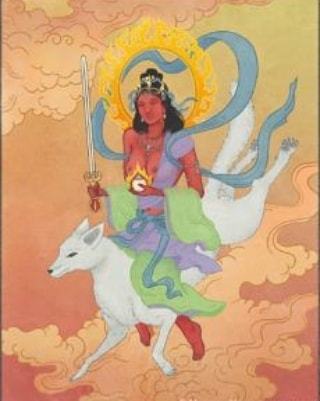
5 notes
·
View notes
Text
Tumi Kuwa Lyrics – Rajnish Saikia | Pincool
Tumi Kuwa Lyrics – Rajnish Saikia | Pincool
Tumi Kuwa Lyrics – Rajnish Saikia | Pincool Tumi Kuwa Lyrics: sung by Rajnish Saikia. while the Lyrics of this new Assamese song Tumi Kuwa lyrics written by Puja Sarma and music by Pincool. Samar Baruah directs the video of the Tumi Kuwa song. Tumi Kuwa Lyrics Tumi mathu mur jibon baator xur Aasahi aa borokhi Aalpona hoi monore duwar Xojuwa tumi aahi Tumi xadhona monore Xantona kolijar…

View On WordPress
0 notes
Photo
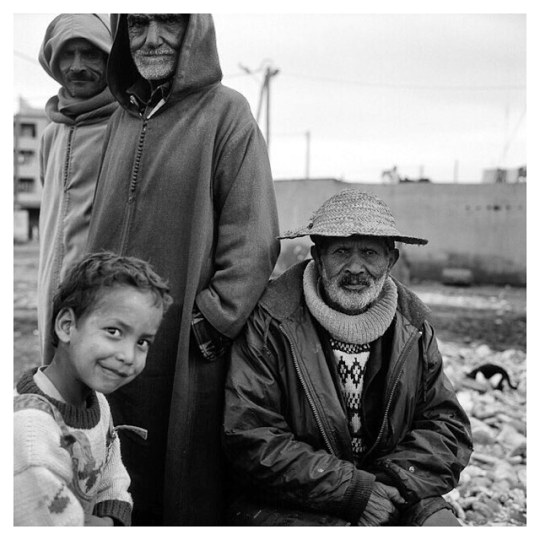
And in the Left corner we have....🇲🇦 ©️Kevin Sturman don’t think this duwar is still there sadly... but they where and interesting group, young and old. #morocco #moroccan #marrakech #bnw_planet #photowall_bw #bw_mania #edits_bnw #flair_bw #ic_bw #monoart_ #blackandwhiteisworththefight #theworldshotz_bnw #goodbnw #welltravelled #followmetoo #passionpassport #liveauthentic #exploretocreate #theworldtravelbook #TheBest_Capture #makeportraits #storyportrait #postmoreportraits #justgoshoot #acertainslantoflight #portrait #streetphotography_bw #shotonfilm #instagood #instafollow (at Marrakech City مدينة مراكش)
#morocco#portrait#theworldtravelbook#justgoshoot#theworldshotz_bnw#exploretocreate#instagood#followmetoo#passionpassport#marrakech#photowall_bw#ic_bw#welltravelled#postmoreportraits#flair_bw#acertainslantoflight#thebest_capture#monoart_#instafollow#liveauthentic#goodbnw#makeportraits#storyportrait#bnw_planet#moroccan#bw_mania#edits_bnw#streetphotography_bw#blackandwhiteisworththefight#shotonfilm
1 note
·
View note
Link
Haridwar is located in Uttrakhand, India, and it the popular and ancient city of India. Haridwar is the religious place of Hindus and the Harki padi is the most famous place of Haridwar. Devprayag and Haridwar are the Teerth Dham of Hindus and it is also the Mokhash Duwar. It is also the Char Dham of Uttrakhand, and Kumbh Mela is held in Haridwar every day. Many famous places also there to see like Chandi Devi, Mansa Devi, Neel Parvat, and Halki Pauri.
0 notes